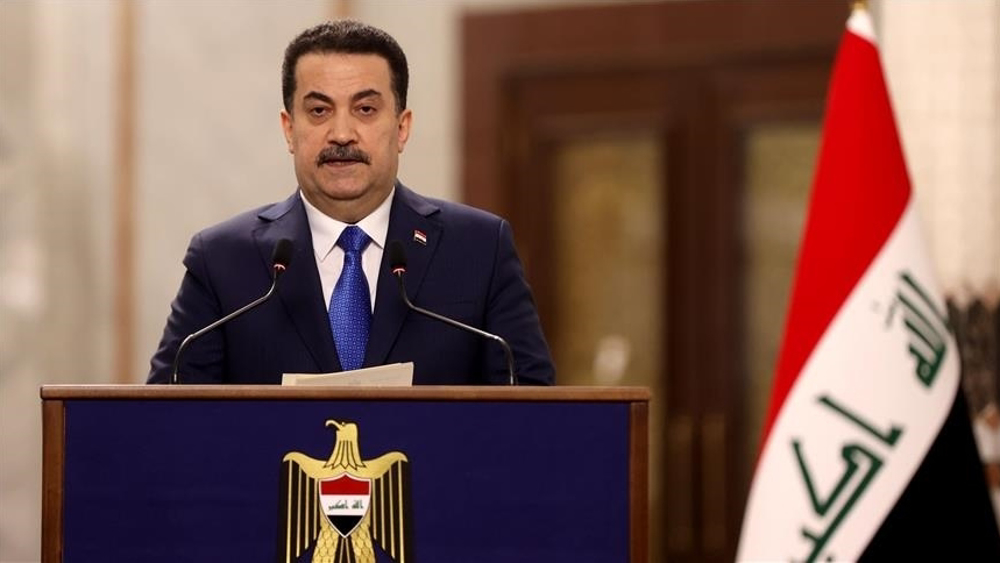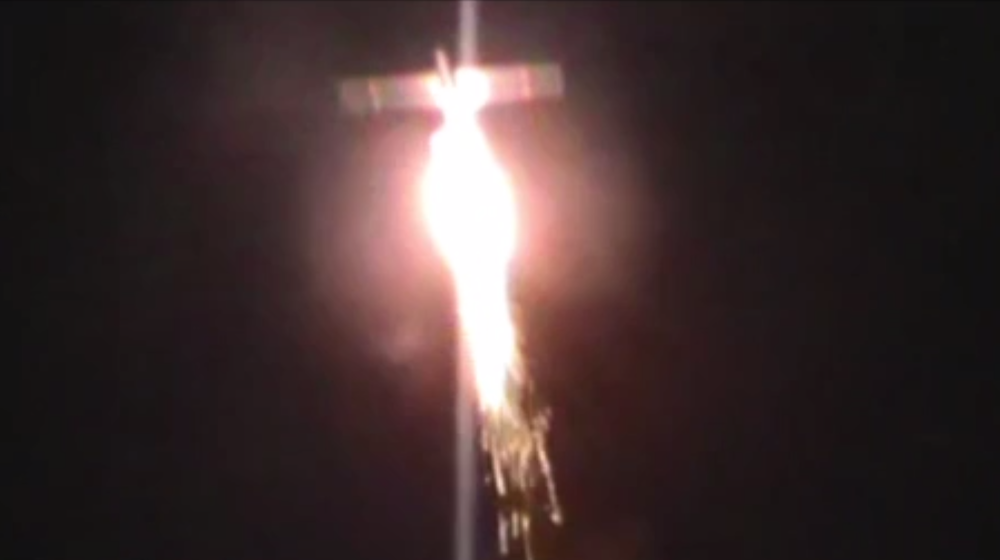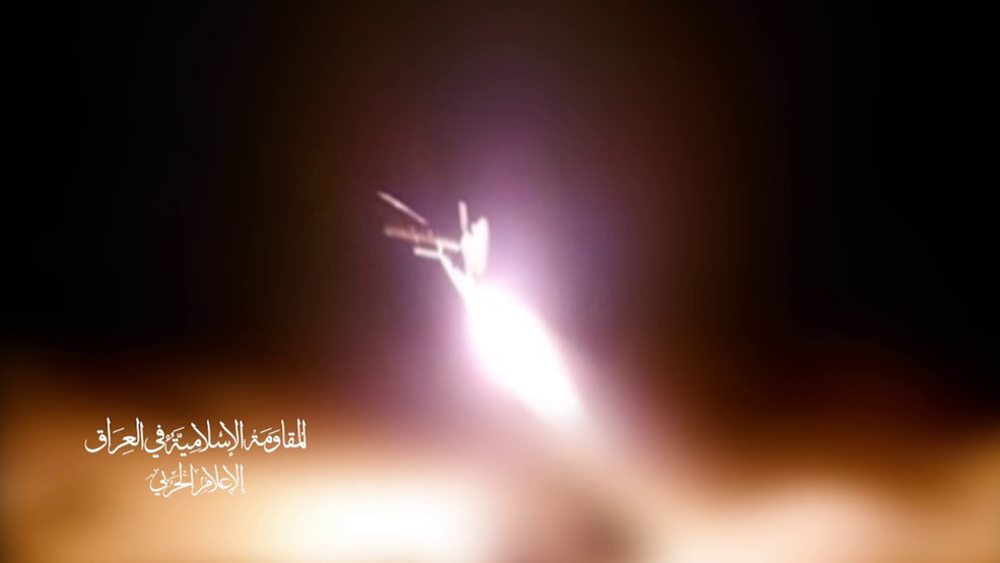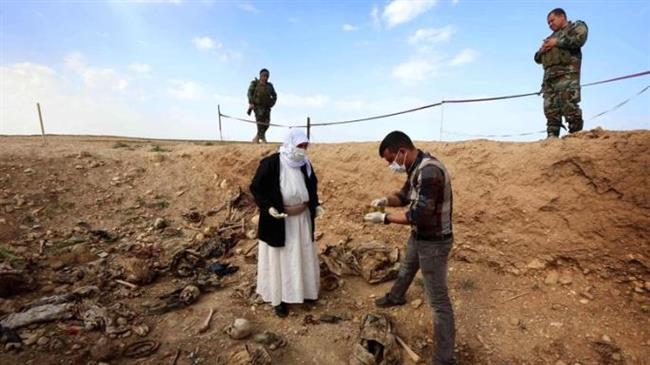Remains of several ex-parliamentary candidates found in mass grave in Iraq’s Nineveh
Iraqi security forces have found a mass grave in the country’s northern province of Nineveh that contains the remains of a number of former parliamentary candidates believed to have been executed by Daesh Takfiri terrorists when they were in control of the area.
Army Captain Karim al-Obeidi said federal police forces had made the discovery in the village of Badush, some 15 kilometers northwest of Mosul.
He added that authorities had so far recovered the bodies of more than 30 people from the grave.
“Those candidates had been kidnapped by the Daesh terrorist group after it overran Mosul in 2014,” Obeidi said.
The Office of the UN High Commissioner for Human Rights (OHCHR) says more than 200 mass graves, containing the remains of thousands of people, have been discovered in territories previously controlled by Daesh Takfiris in Iraq.
“The UN Assistance Mission for Iraq (UNAMI) and the UN Human Rights Office have documented the existence of 202 mass grave sites in the provinces of Nineveh, Kirkuk, Salahuddin and Anbar in the northern and western parts of the country,” the OHCHR said in a report published on Tuesday.
The UN body further noted that there are maybe more mass graves, and it is difficult to determine the total number of people in the mass graves.
“The smallest site in west Mosul contained eight bodies, while the biggest is believed to be the Khasfa sinkhole in south of Mosul which may contain thousands,” the report pointed out.
United Nations High Commissioner for Human Rights, Michelle Bachelet, said “Daesh horrific crimes in Iraq have left the headlines but the trauma of the victims' families endures, with thousands of women, men and children still unaccounted for.”
She added, “These graves contain the remains of those mercilessly killed for not conforming to Daesh’s twisted ideology and rule, including ethnic and religious minorities.”
“Their families have the right to know what happened to their loved ones. Truth, justice and reparations are critical to ensuring a full reckoning for the atrocities committed by Daesh,” Bachelet noted.
Former Iraqi Prime Minister Haider al-Abadi declared the end of military operations against Daesh in the Arab country on December 9, 2017.
On July 10 that year, he formally declared victory over Daesh in Mosul, which served as the terrorists’ main urban stronghold in the conflict-ridden Arab country.
In the run-up to Mosul's liberation, Iraqi army soldiers and volunteer Hashd al-Sha’abi fighters had made sweeping gains against Daesh.
Iraqi forces took control of eastern Mosul in January 2017 after 100 days of fighting, and launched the battle in the west on February 19 last year.
Daesh began a terror campaign in Iraq in 2014, overrunning vast swathes in lightning attacks.
Hezbollah attacks Israeli forces after Lebanese homes blown up
World leaders, states hail ICC arrest warrants for Netanyahu, Gallant
MP: US accountable for possible Israeli 'foolishness' to attack Iraq
VIDEO | Israeli policies strangle Palestinian agriculture, economy
Iran's president offers condolences to Pakistan over terrorist attack
Canada’s Yukon town council at standstill over refusing oath to King Charles
Yemen's Houthi calls for jihad to protect Palestine against Israel
VIDEO | Internal rifts within Israel



















 This makes it easy to access the Press TV website
This makes it easy to access the Press TV website